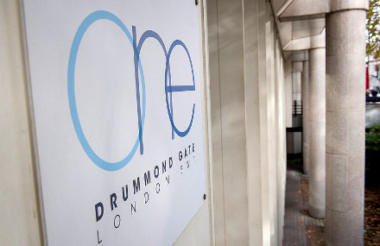There has been a “significant” decrease in the public’s trust and confidence in charities, and the sector is now less trusted than the ordinary man in the street, according to a report published today by the Charity Commission.
The research is the first to be conducted since last summer’s fundraising scandal and the high-profile collapse of Kids Company, and reveals that overall trust has fallen from 6.7 out of 10 in 2014 to 5.7 this year – the lowest since it starting collecting the data in 2005.
Annual research on public trust is carried out by Populus for the Commission and is based on surveys of a representative sample of 1,000 people and discussions with four focus groups. Up until now the level of trust has consistently been between 6.3 and 6.7.
The report concludes that the “sector and the regulator must take these developments seriously”.
One-third of people questioned said that their trust in charities has decreased over the last two years. Of these a third attributed it to general media stories, one third to specific coverage of how charities spend donations and a fifth said that they were unhappy about “pressuring tactics to elicit donations”.
Some 61 per cent said that their trust in charities had stayed the same and just 6 per cent said it had increased.
The Commission urged the sector to work together to build trust.
William Shawcross, chair of the Commission, said: “Charities play a vital role in society and this report shows that the public still overwhelmingly believe that. But public support cannot be taken for granted and these results show that action is needed to restore public confidence. These results are a call to action for everyone who values public trust in charities.”
Trustworthiness of charities
The percentage of people saying that they think charities are trustworthy has fallen from 71 per cent in 2014 to 61 per cent this year.
The report ranks charities' trustworthiness against other sectors. Charities have fallen from third place in 2014 (behind doctors and the police) to fifth place this year (behind doctors, the police, social services and the ordinary man/woman in the street). Charities are still more trusted than banks, newspapers and MPs.
According to the report the five key drivers of public trust and confidence in charities are that they “make a positive difference to the cause they are working for”, “ensure a reasonable proportion of donations make it to the end cause”, “are well managed”, “ensure that its fundraisers are honest ethical” and “make independent decisions, to further the cause they work for”.
The report found that the sector had scored less well against each of these drivers compared to 2014. In 2014 the sector scored an average of 7.1 for making a positive difference and in 2016 it was 6.5.
Sarah Atkinson, director of policy and communications at the Commission, said: “A fall in trust is not unexpected after a very difficult year for charities. But if charities know what matters to the public, they can regain their trust. This research tells us a lot about the drivers of public trust.
“The public wants to see charities explain more and account better for how they manage and spend their money. They want to see honest and ethical fundraising, and they want to know that charities are making a positive difference to their causes. We can also see that when people know more about a charity their trust and confidence in charities generally increases.
“There are positive signs in the sector already, with a new fundraising regulator, a new Charities Act, and with many charities responding positively to the challenge to address public concerns. But there is more work to do to win back trust.”
Which charities are trusted?
The report found that the public were more likely to trust small charities, 57 per cent, than large charities, 34 per cent, and that they were less likely to trust international aid charities, 31 per cent. Though younger people, aged 18 to 24, were more likely to trust international aid charities, 51 per cent.
The top five charities that were spontaneously named for being trusted were:
- Cancer Research UK
- Macmillan Cancer Support
- British Heart Foundation
- Oxfam
- RNLI
The top five least trusted were:
- Oxfam
- RSPCA
- Kids Company
- British Red Cross
- Cancer Research UK
Awareness of the Charity Commission down
Public awareness of the regulator has fallen since 2014, when it was 55 per cent, to 50 per cent. Just 27 per cent said they knew it fairly or very well.
Some 60 per cent said they thought charities were regulated effectively. 7 per cent had used the Commission’s website in the past year.
Young people were more likely to be aware of the Charity Commission, but were more likely to think the sector was well regulated.









